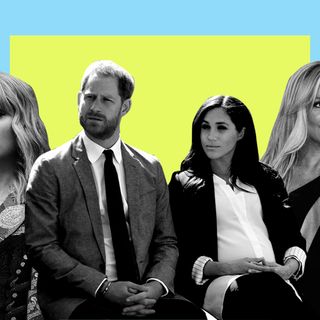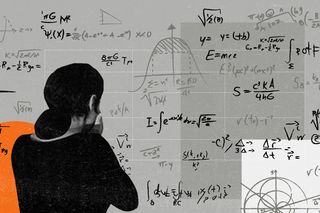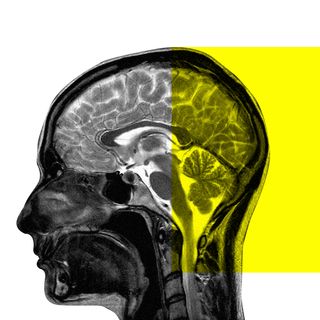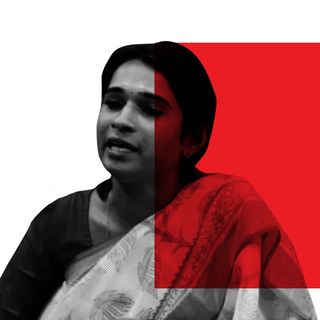
Not Every Autistic Person is a ‘Savant.’ But the Stereotype Has Significant Mental Health Costs.
“My experiences made me feel that autistic people are only valued if they are a ‘genius’ or a ‘savant’ — otherwise, society doesn’t accept us.”

“My experiences made me feel that autistic people are only valued if they are a ‘genius’ or a ‘savant’ — otherwise, society doesn’t accept us… If you are excellent at something, then all is well; without that, it is traumatic,” Rishabh Birla, 25, said.
His experience deeply resonated with me — even though I didn’t know I was autistic until my mid-20s, the sensory, communicative, social, and motor difficulties resulting from my autism had led me to feel excluded and undervalued my whole life. Until I learnt to mask my autism, the only times I felt valued as a person was when I excelled academically. Even now, sometimes when I tell people I am autistic, I can see them burning to ask me whether I have any “special abilities.” The stereotype that autistic individuals have “super” skills to compensate for their neurodivergence continues to thrive.
The savant syndrome is when someone who lives with an intellectual disability exhibits exceptional skill or brilliance in one or more domains. In reality, it is estimated that only around 10% of individuals on the spectrum have savant abilities.
Tanuka Ray, a psychotherapist from Kolkata, who is neurodivergent herself, recalls meeting a parent who was disappointed his autistic son didn’t have extraordinary mathematical skills or a photographic memory to compensate for his autism. “It added to his ‘frustration’ with his child,” she says. During her work as a behavioral therapist for children several years back, she mentions coming across yet another autistic child whose parents very evidently favored his neurotypical, younger sister over him because he didn’t have a high intelligence quotient to make up for his autism.
Ray adds that the stereotype can, in fact, affect an autistic child’s academic progress, besides preventing them from accessing any support they may need to navigate systems designed with neurotypical people in mind. She recalls parents who refused to let their children work with special educators — despite being informed by the school that “their child might be facing difficulties in calculation, language, or perception skills” — stemming either from autism, or even ADHD. Ray believes this denial of support may also have resulted from the parents’ belief that “their kids were supposed to be geniuses,” since they were neurodivergent.
“In school, I was not valued or accepted. But in ninth and tenth grade, when I was scoring excellent grades… suddenly, I was respected, accepted, and valued by teachers, as well as other students and their parents,” Rishabh recalls. He added that people became friends with him in junior college, too, while he was performing well academically, but “drifted away” once he began needing academic support. This impacted his confidence and his sense of self.
Related on The Swaddle:
Why We Expect People With Invisible Disabilities To Learn To Act ‘Normal’
A neurotypical society thus only values — or, at least, accepts — autistic individuals when they can either “fit into” its neurotypical norms by camouflaging their autism or compensate for it with “special” abilities. As Louise, a self-advocate for autism wrote on social media, “unless autistic existence benefits neurotypicals, autistic people are not seen as ‘worthy’… [it] tends to put pressure on [autistic] people to behave in certain ways to feel valuable to society.”
In a society that is severely lacking in awareness of the autism spectrum — or even the fact that autism is a spectrum — pop culture becomes the source of information. And in the process, disadvantages actually autistic people. As a 2009 paper states, much of what society knows about autism is based on media representations of autistic characters — often written and played by non-autistic individuals.
From Shaun Murphy in The Good Doctor, to Sheldon Cooper in The Big Bang Theory, to Fiona Helbron in Elementary — there are countless portrayals of autistic (and “suspected” autistic) characters in pop culture that depict neurodivergence as a “disability ‘superpower'”. This perpetuates the myth of the “model neurominority” — derived from the term “model minority” coined by sociologist William Petersen in 1966, which refers to positively stereotyping certains members of marginalized groups — setting impossible benchmarks for other members, and creating “inspiration porn” for the non-marginalized.
One of the most successful portrayals of autism on cinema ever was in 1988’s Rain Man, which entrenched the stereotype — influencing collective consciousness for decades to come. “Rain Man’s influence on how autism is thought of culturally is incalculable… Before Rain Man, there was no popular conception of what autism looked like, among the public or on-screen,” an article on The Guardian reads. “But an influence, however benign or well-intentioned, can become suffocating if allowed to flourish for too long.” And, it has.
In fact, writer, Karl Knights, noted that “the film has become such a shorthand, that I and every autistic person I know immediately has to caveat the statement ‘I’m autistic’ with ‘I’m not Rain Man‘” — reminiscent of Shahrukh Khan’s trademark dialogue from a 2010 Bollywood movie, where he repeats “My name is Khan, and I’m not a terrorist” over and over again. Interestingly, his character in the movie is also autistic and, unsurprisingly, dubbed a “genius” — informing a whole generation of Indians, including myself, what autism “looks” like.
The idea that autistic people are “extraordinary” might be “well-meaning” but perpetuates society’s inherent ableism — by further “othering” an already marginalized group. “…suggesting autistic people are superheroes or somehow have special powers… [is] a way for… society to ‘other’ us and distance themselves from autistic people,” Louise notes.
Moreover, it is perhaps owing to society’s general discomfort with disabilities — more ableism — that the “autistic geniuses” stereotype has thrived as much as it has. Media assuages a largely able-bodied audience’s discomfort by putting a positive spin on disability by using terms like “courageous” and “inspirational” — the constant portrayal of autistic people as “geniuses” functions the same way.
Related on The Swaddle:
I Self‑Diagnosed My Autism Because Nobody Else Would. Here’s Why That Needs to Change.
In order to combat the stereotype, Shaneel Mukerji, a special educator and therapist from Kolkata, believes in disseminating information about autism to the caregivers of autistic children the right way — by not referring to autistic characters from pop culture to explain what autism is and, instead, by referring to the myriad ways in which it generally manifests and emphasizing the fact that no two autistic people are the same.
However, given how strongly people associate being autistic with being a genius — perhaps, due to years of social conditions — undoing it may not be an easy process.
Moreover, even if therapists like Mukerji do succeed in educating caregivers of autistic children, in a country where the mental health professional-to-people ratio is dismal, it may not be possible to bridge the information chasm and educate classmates, colleagues, and other acquaintances of autistic individuals. Thus still leaving them susceptible to comments that make them feel inadequate for not being able to “compensate” for their autism.
As such, cinema and its harmful stereotypes around neurodivergence become the manual for autistic behavior — taking a toll on the mental health of autistic people and “othering” them.
Every autistic person is different — just like no two neurotypical people are alike. Considering how cinema’s impact on people’s understanding of autism is so pronounced, the solution, perhaps, is for non-autistic filmmakers who choose to make money off portrayals of autism, to involve actually autistic individuals in the process, and provide audiences with a window into actually autistic experiences.
Devrupa Rakshit is an Associate Editor at The Swaddle. She is a lawyer by education, a poet by accident, a painter by shaukh, and autistic by birth. You can find her on Instagram @devruparakshit.
Related


All You Need To Know About Cerebral Palsy
